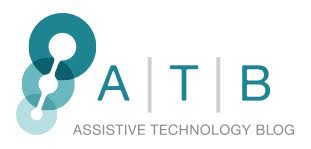Speech Accessibility Project Now Sharing Data To Help Organizations Enhance Automatic Speech Recognition
The Speech Accessibility Project, led by Mark Hasegawa-Johnson at the University of Illinois Urbana-Champaign, is making significant strides in improving speech recognition technology for individuals with speech differences, especially those with Parkinson’s disease. The project, supported by tech giants like Amazon, Apple, Google, Meta, and Microsoft, has started sharing voice recordings and related data from 211 Parkinson’s patients with universities, nonprofits, and companies. To access this data, interested parties need to submit a one-page proposal and sign a data use agreement, which includes the original speech prompts, responses from participants, and in some cases, detailed annotations about speech characteristics.
This initiative aims to enhance automatic speech recognition (ASR) systems by training them to understand diverse speech patterns found in individuals with various disabilities such as amyotrophic lateral sclerosis, cerebral palsy, Down syndrome, Parkinson’s disease, and stroke survivors. The project not only requires that users of the data do not distribute or misuse it but also encourages them to publish their results and acknowledge the Speech Accessibility Project in their publications. Hasegawa-Johnson’s vision is to leverage these datasets to significantly improve the accessibility of speech technology, making a measurable difference in the lives of those affected by these conditions.
Background:
This project, with roots in the 2008 UA-Speech corpus, seeks to enhance accessibility for people with conditions like Parkinson’s Disease, Cerebral Palsy (CP), Down Syndrome, ALS, and those affected by strokes. By recording speech samples from participants across the U.S. and Puerto Rico at UIUC’s Beckman Institute, the project ensures data privacy and security while gathering essential information to improve communication technologies. This effort not only supports the inclusion of individuals with speech impairments but also strives to make technological interactions smoother and more accessible, thereby enhancing the quality of life for many.
Source: Speech Accessibility Project
ChatGPT, a potential tool for increased accessibility, was used as a research and writing aid for this blog post. Do you think this is an appropriate use of chatGPT? Why or why not? Let me know!


It is excellent to see collaboration among technologists, while in pursuit of making the tools we rely on, even more accurate and useful. This is especially true when the tech being improved is geared towards helping those in need. Thank you for the information and the well-written article.